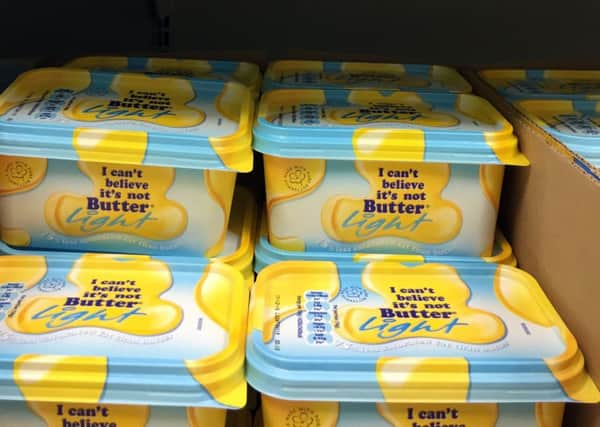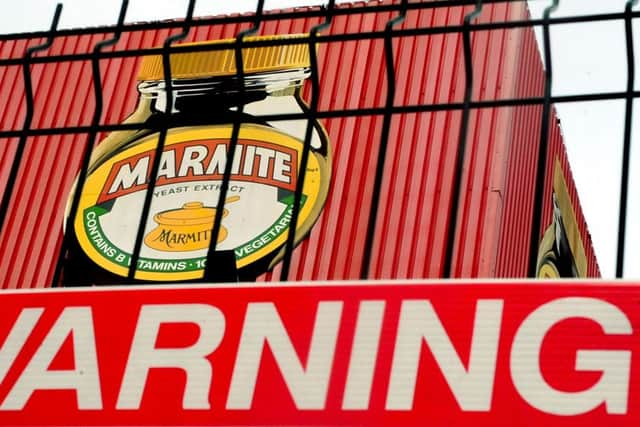I can't believe it's not cheaper: Marmite row '˜could signal spiral of price rises'


Unilever is believed to have demanded a 10 per cent price rise on some household items due to the falling value of sterling, halting deliveries to Tesco when it refused.
The dispute between Tesco and one of the world’s biggest consumer goods companies means popular products such as Persil washing powder, PG Tips tea bags and I Can’t Believe It’s Not Butter spread, are not currently available on Tesco’s website, the country’s largest online grocer.
Advertisement
Hide AdAdvertisement
Hide AdUnilever has declined to comment on the specifics of the row but its chief financial officer Graeme Pitkethly said that price increases were the normal response to a devaluation, adding that the scope of the increases was “substantially less” than what was needed to cover the hit.


“We are confident that this situation will be resolved pretty quickly,” he said.
Tesco said it was currently experiencing availability issues on a number of Unilever products.
“We always work to ensure customers get the best possible prices and we hope to have this issue resolved soon,” a Tesco spokesman said.
Advertisement
Hide AdAdvertisement
Hide AdHowever, retail expert have warned consumers that they could face a New Year surge in prices. Steven Dresser, retail analyst at Grocery Insight, said there was likely to be a round of price rises in January as retailers look to pass on higher costs once Christmas is out of the way.


Retailers are facing rising costs of goods and materials from the plunging value of the pound since the Brexit vote, but are under pressure to keep prices low in a competitive market.
Mr Dresser said the Tesco row over prices with Unilever was a pre-cursor to other moves by suppliers to put up the costs of their products.
He added: “No one wants to put prices up ahead of Christmas. Others may just wait until January. It’s only going to get more painful.”
Advertisement
Hide AdAdvertisement
Hide AdLaith Khalaf, senior analyst at Hargreaves Lansdown, said the pricing spat was likely to be the “thin end of the wedge”.
“This kind of friction is an inevitable result of the unstoppable force of higher import costs hitting the immovable object of UK retail pricing,” he added.
The British Retail Consortium warned earlier this week that Brexit could leave retailers with no option but to pass on costs to consumers.